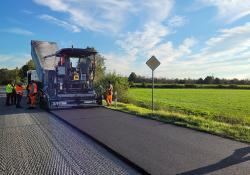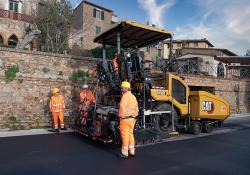
After major structural work, the historic Széchenyi Chain Bridge in Budapest, Hungary, has reopened but not for private cars and trucks.
Load testes were done in November and it was reported that the primary data showed the bridge performing well under the stress. Media report that the bridge will not be fully open until autumn next year.
According to the city’s transport agency, BKK Centre for Budapest Transport, work on the bridge deck was recently completed. However, work on the underpasses and pavement is expected to continue into 2023.
In mid-2020, BKK had received four tenders for renovation works on the Széchenyi Chain Bridge and signed a deal with A-Hid contractor in early 2021. The local municipality of Budapest is to cover the cost of the project from its own funds, as well as from a loan and from a state subsidy. Last December, the final steel plate of the road deck was installed.
When opened, the structure was the first permanent bridge over the Danube River that connected the opposite towns of Buda and Pest – now together the Hungarian capital. At the time, its centre span of 202m was one of the longest in the world.
The bridge has the official name of István Széchenyi, a major supporter of its construction, although it is commonly called the Chain Bridge.













